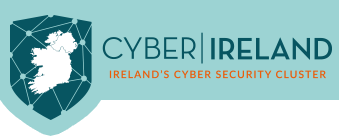- Knowledge of computer networking concepts and protocols, and network security methodologies.
- Knowledge of risk management processes (e.g., methods for assessing and mitigating risk).
- Knowledge of laws, regulations, policies, and ethics as they relate to cybersecurity and privacy.
- Knowledge of cybersecurity and privacy principles.
- Knowledge of cyber threats and vulnerabilities.
- Knowledge of specific operational impacts of cybersecurity lapses.
- Knowledge of cyber defense and vulnerability assessment tools and their capabilities.
- Knowledge of the capabilities and functionality associated with content creation technologies (e.g., wikis, social networking, content management systems, blogs).
- Knowledge of the capabilities and functionality associated with various technologies for organizing and managing information (e.g., databases, bookmarking engines).
- Knowledge of the capabilities and functionality of various collaborative technologies (e.g., groupware, SharePoint).
- Knowledge of the organization's core business/mission processes.
- Knowledge of Cloud-based knowledge management technologies and concepts related to security, governance, procurement, and administration.
- Knowledge of data classification standards and methodologies based on sensitivity and other risk factors.
- Knowledge of taxonomy and semantic ontology theory.
- Knowledge of Personally Identifiable Information (PII) data security standards.
- Knowledge of Payment Card Industry (PCI) data security standards.
- Knowledge of Personal Health Information (PHI) data security standards.
- Knowledge of use cases related to collaboration and content synchronization across platforms (e.g., Mobile, PC, Cloud).
- Knowledge of an organization's information classification program and procedures for information compromise.
- Knowledge of the principal methods, procedures, and techniques of gathering information and producing, reporting, and sharing information.
- Knowledge of data mining techniques.
- Knowledge of database theory.
Knowledge Manager
Responsible for the management and administration of processes and tools that enable the organization to identify, document, and access intellectual capital and information content.
- Skill in conducting information searches.
- Skill in conducting knowledge mapping (e.g., map of knowledge repositories).
- Skill in the measuring and reporting of intellectual capital.
- Skill in using knowledge management technologies.
- Ability to match the appropriate knowledge repository technology for a given application or environment.
- Construct access paths to suites of information (e.g., link pages) to facilitate access by end-users.
- Develop an understanding of the needs and requirements of information end-users.
- Monitor and report the usage of knowledge management assets and resources.
- Plan and manage the delivery of knowledge management projects.
- Provide recommendations on data structures and databases that ensure correct and quality production of reports/management information.
- Lead efforts to promote the organization's use of knowledge management and information sharing.
- Manage the indexing/cataloguing, storage, and access of explicit organizational knowledge (e.g., hard copy documents, digital files).
- Design, build, implement, and maintain a knowledge management framework that provides end-users access to the organization's intellectual capital.
- Promote knowledge sharing between information owners/users through an organization's operational processes and systems.
